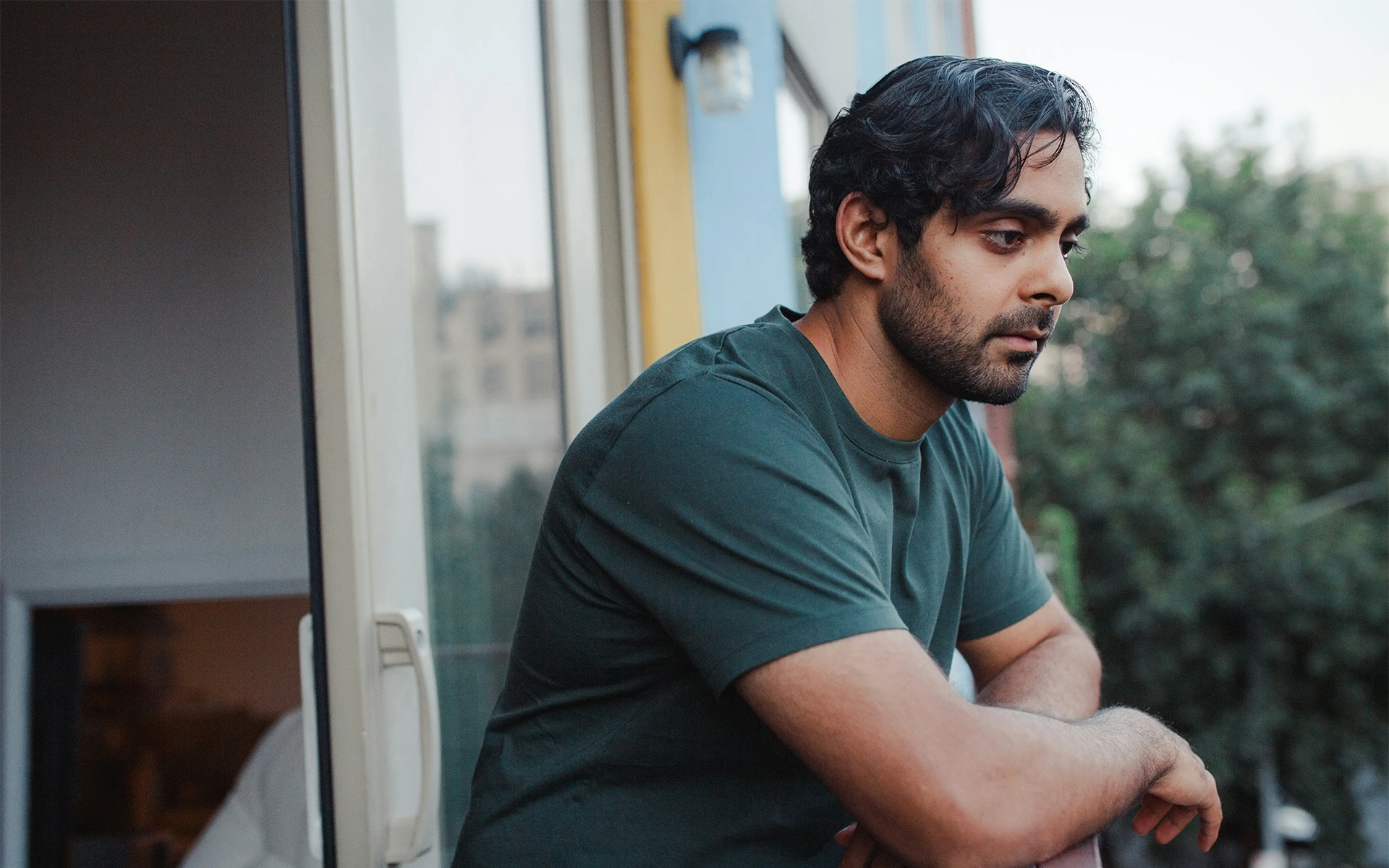Bringing the conversation about mental health to the forefront with insights from Gamal Turawa & John Moe's PepTalks for Mental Health Awareness Week.
With one in four of us experiencing a mental health issue every year, we should be able to openly talk about it. But it's not that easy. There still lies a lot of societal and internal stigma - leading to a lot of bottling up, pushing down or simply numbing of that pain. So, to start a shift in the narrative we’ve brought together two leading minds on mental health together: the brilliant protagonist of ‘The Black Cop’, Gamal Turawa and highly-successful podcaster and author John Moe. They bring a nuanced view on what needs to change to open up the conversation around mental health and how to take those first steps in getting or offering help.
Mental health’s societal stigma
There's been some massive moves in the right direction to better understand and open up routes of communication about mental health. However, it is still something we might hide, cover up or not know how to chat about. Gamal uncovers why this might be “We live in a society nowadays where its image it’s about how we present rather than who we are. And sometimes the power of that presentation can be so overwhelming that it stops you from being you.”. It’s this fear of what others might think of us that may stop us from being open and honest. From opening up about our true selves, mental health issues and all.
John talks about the shifting understanding of mental illness, “We need to fully understand that these things are not choices. These things aren’t character flaws. That these things aren’t anything that you would’ve elected, because who would have elected to do this? We need to understand that depression doesn't care how much money you have in the bank. It doesn’t care whether you got a big promotion. It doesn't care about any of the things someone would think that you have to be depressed about. Because it’s not about anything.”
Mental illness and struggles with our mental health are not choices. Those with eating disorders don’t just choose to have a difficult relationship with food. Those with depression don’t just choose to be sad. Those with anxiety don’t just choose to be worried. Mental health goes much deeper. It's often intrinsically tied to someone’s very being or a result of their life experiences. Once there is wider acknowledgement of the complexity of mental health and illness, we can not only forgive ourselves when we have mental health struggles but we can offer support to others without judgement too.
Opening up the conversation
Even with a perspective shift, it can be difficult to open up a conversation around mental health - whether it’s you that’s experiencing it or someone close to you.
If you’re struggling with your mental health
Taking that first step can be the scariest. It’s admitting that there is something wrong. It’s making yourself vulnerable to someone else. It’s making it known that you’re fallible. This can be incredibly difficult if you’re already in a fragile headspace. But, it can have so much power and allows you to offload the weight you might be feeling. So, here is some advice from our experts on making that initial reach out for help.
- Have self-compassion: John highlights the importance of acknowledging the strength in taking the first step, “Recognise that it’s not your fault. If you’re having these problems it’s not that you’ve chosen to have them. So therefore you’re not inherently a bad person for having them. You’re not flawed. You’re not weak.”
- Be ready to ask for help: Gamal explained that talking wasn’t what he wanted to do initially, “Part of it is you have to be ready to ask for that help. The first barrier is fear. Start by finding someone you trust and people will surprise you.” You have to be in a place where you’re ready to share how you’re feeling - not forced to by someone else. You can only commit to getting better or moving through a mental health issue if we choose to.
- Choose the right person: it doesn’t have to be a professional. It could be a trusted friend, colleague, member of your family, doctor or coach. Pick a person you trust that might be more applicable to your specific feeling. Gamal recounted that he chose one of his police colleagues to share his feelings about his sexuality; they were also gay, he felt safer speaking to them first.
If you’re trying to help someone else
You might have someone close to you who seems to be struggling but you’re not sure how to start the conversation with them. Our experts have some guidance on how to best go about it, without pushing the person away.
- Consider where they are: it’s not always those that are withdrawn that are struggling. “If you had seen me earlier in my career you wouldn’t know I had an issue. Because I was the life and soul of the party, I was the guy that did all those crazy things. I would laugh and joke and everyone found it fun to be around me. And even now people are surprised to know what was going on for me at that time. The signs might not even be there because some people are very good at hiding.”, says Gamal of his mental health journey. Think carefully before making assumptions and don't go into a conversation all guns blazing. Consider the person's feelings and question if they might be putting up a front to offset any suspicion that they're not in a good place mentally.
- Set the precedent for trust: John talked about the power of being vulnerable yourself. Sharing how you might be struggling and asking if they’re feeling the same can be a great place to start. The response may be no at that moment, but it sets the stage for a relationship where they can feel safe to share. They might get back to you the next day, next week or even a year from now. But the simple act of opening up shows you're ready to listen whenever suits them.
- Make time to listen: and we mean really listen. Not butting in with your opinions or solutions - only offering them if they’ve asked for them or they’ve confirmed they can accept them. Often people just want to feel heard rather than jumping straight to solution mode. So give them space to speak without interruption.
- Offer alternatives if you’re not in a space to chat: “When somebody comes to you and says 'I need to talk' if you’re not in the place where you’re ready to listen don’t just say not now. Say to them I would love to hear you, I’m in the middle of things right now but can we schedule this. Let them know you’re ready to hear you and that you want to be in a space where you’re ready to listen”, Gamal notes. This ensures that they feel valued and that you want to show up fully for them.
Mental health is a nuanced and complex subject. One that we’ll all be able to relate to or at least will have a brush with within our lifetime. Opening up the conversation is key to ensuring that public mental health doesn’t continue to decline. As John Moe said in his PepTalk when there was a litter issue we did something about it. When there was a smoking issue, we did something about it. When drunk driving was an issue we did something about it. Did it eradicate it? No. But it significantly reduced the problem and served to create a new narrative. And the same can be done for mental health. Just the simple shift of creating a world with no shame around having a conversation about our mental well-being could make a difference to millions of people’s health. To watch both Gamal and John’s PepTalks in full, check out our subscription service. Or to book either of them for a private PepTalk, get in touch with our team today.







.png)







.svg)





